Francis Collins is a veritable national treasure. He directed the National Institutes of Health from 2009 to 2021. Prior to that he led the National Human Genetics Research Institute (NHGRI) from 1997-2009, during which the human genome was first sequenced. As a physician-scientist, he has made multiple seminal discoveries on the genetic underpinnings of cystic fibrosis, Huntington’s disease, neurofibromatosis, progeria, and others. This brief summary is barely scratching the surface oh his vast contributions to life science and medicine.
A video clip from our conversation on hepatitis C. Full videos of all Ground Truths podcasts can be seen on YouTube here. The audios are also available on Apple and Spotify.
Transcript with external inks and links to audio
Eric Topol (00:06):
Well, I am really delighted to be able to have our conversation with Francis Collins. This is Eric Topol with Ground Truths and I had the chance to first meet Francis when he was on the faculty at the University of Michigan when I was a junior faculty. And he gave, still today, years later, we're talking about 40 years later, the most dazzling Grand Rounds during his discovery of cystic fibrosis. And Francis, welcome, you inspired me and so many others throughout your career.
Francis Collins (00:40):
Well, Eric, thank you and you've inspired me and a lot of other people as well, so it's nice to have this conversation with you in the Ground Truths format.
Eric Topol (00:49):
Well, thank you. We're at the occasion of an extraordinary book you put together. It's the fifth book, but it stands out quite different from the prior books as far as I can tell. It's called The Road to Wisdom: On Truth, Science, Faith and Trust, these four essential goods that build upon each other. And it's quite a book, Francis, I have to say, because you have these deep insights about these four critical domains and so we'll get into them. But I guess the first thing I thought I'd do is just say, how at some point along the way you said, “the goal of this book is to turn the focus away from hyperpartisan politics and bring it back to the most important sources of wisdom: truth, science, faith and trust, resting upon a foundation of humility, knowledge, morality, and good judgment.” So there's a lot there. Maybe you want to start off with what was in the background when you were putting this together? What were you really aiming at getting across?
Reflections on Covid
Francis Collins (02:06):
I'm glad to, and it's really a pleasure to have a chance to chat with you about this. I guess before Covid came along, I was probably a bit of a naive person when it came to how we make decisions. Yeah, I knew there were kind of wacky things that had gone out there from time to time, but I had a sort of Cartesian attitude that we were mostly rational actors and when presented with evidence that's been well defended and validated that most people will say, okay, I know what to do. Things really ran off the rails in the course of Covid. It was this remarkable paradox where, I don't know what you would say, but I would say the development of the vaccines that were safe and highly effective in 11 months using the mRNA platform was one of the most stunning achievements of science in all of history up until now.
Francis Collins (03:02):
And yet 50 million Americans decided they didn't want any part of it because of information that came to them that suggested this was not safe or there was conspiracies behind it, or maybe the syringes had chips that Bill Gates had put in there or all manner of other things that were being claimed. And good honorable people were distracted by that, lost their trust in other institutions like the CDC, maybe like the government in general like me, because I was out there a lot trying to explain what we knew and what we didn't know about Covid. And as a consequence of that, according to Kaiser Family Foundation, more than 230,000 people died between June of 2021 and April of 2022 because of a decision to reject the opportunity for vaccines that were at that time free and widely available. That is just an incredibly terribly tragic thing to say.
Francis Collins (04:03):
More than four times the number of people who died, Americans who died in the Vietnam War are in graveyards unnecessarily because we lost our anchor to truth, or at least the ability to discern it or we couldn't figure out who to trust while we decided science was maybe not that reliable. And people of faith for reasons that are equally tragic were among those most vulnerable to the misinformation and the least likely therefore, to take advantage of some of these lifesaving opportunities. It just completely stunned me, Eric, that this kind of thing could happen and that what should have been a shared sense of working against the real enemy, which was the SARS-CoV-2 virus became instead a polarized, divisive, vitriolic separation of people into separate camps that were many times driven more by politics than by any other real evidence. It made me begin to despair for where we're headed as a country if we can't figure out how to turn this around.
Francis Collins (05:11):
And I hadn't really considered it until Covid how serious this was and then I couldn't look away. And so, I felt if I have a little bit of credibility after having stepped down after 12 years as the NIH Director and maybe a chance to influence a few people. I just have to try to do something to point out the dangers here and then to offer some suggestions about what individuals can do to try to get us back on track. And that's what this book is all about. And yeah, it's called The Road to Wisdom because that's really how I want to think of all this in terms of truth and science and faith and trust. They all kind of give you the opportunities to acquire wisdom. Wisdom is of course knowledge, but it's not just knowledge, it's also understanding it has a moral character to it. It involves sophisticated judgment about difficult situations where there isn't an obvious answer. We need a lot more of that, it seems we’re at short supply.
Deconvoluting Truth
Eric Topol (06:13):
Well, what I really loved about the book among many things was how you broke things down in just a remarkably thoughtful way. So truth, you have this great diagram like a target with the four different components.
in the middle, necessary truth. And then as you go further out, firmly established facts, then uncertainty and then opinion, and truth is not a dichotomous by any means. And you really got that down and you explained each of these different facets of truth with great examples. And so, this among many other things that you broke down, it wasn't just something that you read somewhere, you really had to think this through and perhaps this experience that we all went through, but especially you. But because you bring so much of the book back to the pandemic at times with each of the four domains, so that and the spider web. The spider web of where your core beliefs
are and then the ones further out on the web and you might be able to work on somebody out further periphery, but it's pretty hard if you're going to get to them in the middle where their main thing is science is untrustworthy or something like that.
Eric Topol (07:36):
So how did you synthesize these because the graphics are quite extraordinary?
Francis Collins (07:44):
Well, I will say the artist for the graphics is a remarkable graphic design student at the University of Michigan who happens to be my granddaughter. So it was nice having that ability to have my scratches turned into something actually looks like artwork. The concepts I got to say, Eric, I was feeling pretty unsure of myself. I never took a course in philosophy. I know there are people who've spent their entire careers going all the way back to Socrates and on up until now about what does truth mean and here's this scientist guy who's trying to say, well, let me tell you what I think about it. I'm glad to hear that you found these circles useful. They have been very useful for me and I hadn't thought about it much until I tried to put it in some sort of framework and a lot of the problems we have right now where somebody says, well, that might be true for you, but it's not true for me, that's fine if you're talking about an opinion, like whether that movie was really good or not.
Francis Collins (08:43):
But it's not fine if it's about an established fact, like the fact that climate change is real and that human activity is the main contributor to the fact that we've warmed up dramatically since 1950. I'm sorry, that's just true. It doesn't care how you feel about it, it's just true. So that zone of established facts is where I think we have to re-anchor ourselves again when something's in that place. I'm sorry, you can't just decide you don't like it, but in our current climate and maybe postmodernism has crept in all kinds of ways we're not aware of, the idea that there is such a thing as objective truth even seems to be questioned in some people's minds. And that is the path towards a terrible future if we can't actually decide that we have, as Jonathan Rauch calls it, a constitution of knowledge that we can depend on, then where are we?
Eric Topol (09:37):
Well, and I never heard of the term old facts until the pandemic began and you really dissect that issue and like you, I never had anticipated there would be, I knew there was an anti-science, anti-vaccine sector out there, but the fact that it would become so strong, organized, supported, funded, and vociferous, it's just looking back just amazing. I do agree with the statement you made earlier as we were talking and in the book, “the development of mRNA vaccines for Covid in record time as one of the greatest medical achievements in human history.” And you mentioned besides the Kaiser Family Foundation, but the Commonwealth Fund, a bipartisan entity saved three million lives in the US, eighteen million hospitalizations. I mean it's pretty extraordinary. So besides Covid, which we may come back to, but you bring in everything, you bring in AI. So for example, you quoted the fellow from Google who lost his job and you have a whole conversation with Blake Lemoine and maybe you can give us obviously, where is AI in the truth and science world? Where do you stand there and what were you thinking when you included his very interesting vignette?
Perspective on A.I.
Francis Collins (11:17):
Well, I guess I was trying to talk about where are we actually at the point of AGI (artificial general intelligence) having been achieved? That is the big question. And here's Blake Lemoine who claimed based on this conversation that I quote in the book between him and the Google AI apparatus called LaMDA. Some pretty interesting comments where LaMDA is talking about having a soul and what its soul looks like and it's a portal to all sorts of other dimensions, and I can sort of see why Blake might've been taken in, but I can also see why a lot of people said, oh, come on, this is of course what an AI operation would say just by scanning the internet and picking out what it should say if it's being asked about a soul. So I was just being a little provocative there. My view of AI, Eric, is that it's applications to science and medicine are phenomenal and we should embrace them and figure out ways to speed them up in every way we can.
Francis Collins (12:17):
I mean here at NIH, we have the BRAIN Initiative that's trying to figure out how your brain works with those 86 billion neurons and all their connections. We're never going to sort that out without having AI tools to help us. It's just too complicated of a problem. And look what AI is doing and things like imaging radiologists are going to be going out of business and the pathologists may not be too far behind because when it comes to image analysis, AI is really good at that, and we should celebrate that. It's going to improve the speed and accuracy of all kinds of medical applications. I think what we have to worry about, and I'm not unique in saying this, is that AI when applied to a lot of things kind of depends on what's known and goes and scrapes through the internet to pull that out. And there's a lot of stuff on the internet that's wrong and a lot of it that's biased and certainly when it comes to things like healthcare, the bias in our healthcare system, health disparities, inadequacies, racial inequities are all in there too, and if we're going to count on AI to fix the system, it's building on a cracked foundation.
Francis Collins (13:18):
So we have to watch out for that kind of outcome. But for the most part, generative AI it’s taking really exciting difficult problems and turning them into solutions, I'm all for it, but let's just be very careful here as we watch how it might be incorporating information that's wrong and we won't realize it and we'll start depending on it more than we should.
Breathtaking Advances
Eric Topol (13:42):
Yeah, no, that's great. And you have some commentary on all the major fronts that we're seeing these days. Another one that is a particularly apropos is way back when you were at Michigan and the years before that when you were warming up to make some seminal gene discoveries and cystic fibrosis being perhaps the first major one. You circle back in the book to CRISPR genome editing and how the success story to talk about some extraordinary science to be able to have a remedy, a cure potentially for cystic fibrosis. So maybe you could just summarize that. I mean that's in your career to see that has to be quite remarkable.
Francis Collins (14:32):
It is breathtaking, Eric. I mean I sort of like to think of three major developments just in the last less than 20 years that I never dreamed would happen in my lifetime. One was the ability to make stem cells from people who are walking around from a skin biopsy or a blood sample that are pluripotent. My whole lab studies diabetes, our main approach is to take induced pluripotent stem cells from people whose phenotypes we know really well and differentiate them into beta cells that make insulin and see how we can figure out how the genetics and other aspects of this determine whether something is going to work properly or not. I mean that's just astounding. The second thing is the ability to do single cell biology.
Francis Collins (15:16):
Which really 15 years ago you just had to have a bunch of cells and studying diabetes, we would take a whole eyelid and grind it up and try to infer what was there, ridiculous. Now we can look at each cell, we even can look at each cell in terms of what's its neighbor, does the beta cell next to an alpha cell behave the same way as a beta cell next to a duct? We can answer those questions, and of course the third thing is CRISPR and gene editing and of course the first version of CRISPR, which is the knockout of a gene was exciting enough, but the ability to go in and edit without doing a double stranded break and actually do a search and replace operation is what I'm truly excited about when it comes to rare genetic diseases including one that we work on progeria, which is this dramatic form of premature aging that is caused almost invariably by a C to T mutation in exon 11 of the LMNA gene and for which we have a viable strategy towards a human clinical trial of in vivo gene editing for kids with this disease in the next two years.
Eric Topol (16:24):
Yeah, it's just the fact that we were looking at potential cures for hundreds and potentially even thousands of diseases where there was never a treatment. I mean that's astounding in itself, no less, the two other examples. The fact that you can in a single cell, you can not only get the sequence of DNA and RNA and methylation and who would've ever thought, and then as you mentioned, taking white cells from someone's blood and making pluripotent stem cells. I mean all these things are happening now at scale and you capture this in the book.
On Humility and Trust
Now the other thing that you do that I think is unique to you, I don't know if it's because of your background in growing up in Staunton, Virginia, a very different type of world, but you have a lot of humility in the book. You go over how you got snickered by Bill Maher, how you had a graduate student who was fabricating images and lots of things, how you might not have communicated about Covid perhaps as well as could. A lot of our colleagues are not able to do that. They don't ever have these sorts of things happening to them. And this humility which comes across especially in the chapter on trust where you break down who do you trust, humility is one of the four blocks as you outlined, competence, integrity, and aligned value
So maybe can you give us a little brief lesson on humility?
Eric Topol (18:06):
Because it's checkered throughout the book and it makes it this personal story that you're willing to tell about yourself, which so few of us are willing to do.
Francis Collins (18:17):
Well, I don't want to sound proud about my humility. That would not be a good thing because I’m not, but thanks for raising it. I do think when we consider one of the reasons we decide to trust somebody, that it does have that humility built into it. Somebody who's willing to say, I don't know. Somebody's willing to say I'm an expert on this issue, but that other issue you just asked me about, I don't know any more than anybody else and you should speak to someone else. We don't do that very well. We tend to plunge right in and try to soak it up. I do feel when it comes to Covid, and I talk about this in the book a bit, that I was one of those trying to communicate to the public about what we think are going to be the ways to deal with this worst pandemic in more than a century.
Francis Collins (19:06):
And I wish Eric, I had said more often what I'm telling you today is the best that the assembled experts can come up with, but the data we have to look at is woefully inadequate. And so, it very well could be that what I'm telling you is wrong, when we get more data, I will come back to you as soon as we have something better and we'll let you know, but don't be surprised if it's different and that will not mean that we are jerking you around or we don't know what we're talking about. It's like this is how science works. You are watching science in real time, even though it's a terrible crisis, it's also an opportunity to see how it works. I didn't say that often enough and neither did a lot of the other folks who were doing the communicating. Of course, the media doesn't like to give you that much time to say those things as you well know, but we could have done a better job of preparing people for uncertainty and maybe there would've been less of a tendency for people to just decide, these jokers don't know what they're talking about.
Francis Collins (20:10):
I'm going to ignore them from now on. And that was part of what contributed to those 230,000 unnecessary deaths, it was just people losing their confidence in the information they were hearing. That's a source of grief from my part.
His Diagnosis And Treatment for Prostate Cancer
Eric Topol (20:24):
Well, it's great and a lesson for all of us. And the other thing that along with that is remarkable transparency about your own health, and there's several things in there, but one that coincides. You mentioned in the book, of course, you wrote an op-ed in the Washington Post back in April 2024 about your diagnosis of prostate cancer. So you touched on it in the book and maybe you could just update us about this because again, you're willing to tell your story and trying to help others by the experiences that you've been through.
Francis Collins (21:00):
Well, I sure didn't want to have that diagnosis happen, but once it did, it certainly felt like an opportunity for some education. We men aren't that good about talking about issues like this, especially when it involves the reproductive system. So going out and being public and saying, yep, I had a five year course of watching to see if something was happening, and then the slow indolent cancer suddenly decided it wasn't slow and indolent anymore. And so, I'm now having my prostate removed and I think I'm a success story, a poster boy for the importance of screening. If I hadn't gone through that process of PSA followed by imaging by MRI followed by targeted biopsies, so you're actually sampling the right place to see if something's going on. I probably would know nothing about it right now, and yet incubating within me would be a Gleason category 9 prostate cancer, which has a very high likelihood if nothing was done to become metastatic.
Francis Collins (22:03):
So I wanted that story to be out there. I wanted men who were squeamish about this whole topic to say, maybe this is something to look into. And I've heard a bunch of follow-ups from individuals, but I don't know how much of it impact it hit. I'm glad to say I'm doing really well. I'm four months out now from the surgery, it is now the case I'm pretty much back to the same level of schedule and energy that I had beforehand, and I'm very happy to say that the post-op value of PSA, which is the best measure to see whether you in fact are now cancer free was zero, which is a really nice number.
Eric Topol (22:45):
Wow. Well, the prostate is the curse of men, and I wish we could all have an automated prostatectomy so we don't have to deal with this. It's just horrible.
Francis Collins (22:58):
It was done by a robot. It wasn't quite automated, I have stab wounds to prove that the robot was actually very actively doing what it needed to do, but they healed quickly.
The Promise of Music As Therapy in Medicine
Eric Topol (23:11):
Right. Well, this gets me to something else that you're well known for throughout your career as a musician, a guitarist, a singer, and recently you hooked up with Renée Fleming, the noted opera singer, and you've been into this music is therapy and maybe you can tell us about that. It wasn't necessarily built up much in the book because it's a little different than the main agenda, but I think it's fascinating because who doesn't like music? I mean, you have to be out there if you don't enjoy music, but can you tell us more about that?
Francis Collins (23:53):
Yeah, I grew up in a family where music was very much what one did after dinner, so I learned to play keyboard and then guitar, and that's always been a source of joy and also a source of comfort sometimes when you were feeling a bit down or going through a painful experience. I think we all know that experience where music can get into your heart and your soul in a way that a lot of other things can't. And the whole field of music therapy is all about that, but it's largely been anecdotal since about World War II when it got started. And music therapists will tell you sometimes you try things that work and sometimes they don't and it's really hard to know ahead of time what's going to succeed. But now we have that BRAIN Initiative, which is pushing us into whole new places as far as the neuroscience of the brain, and it's really clear that music has a special kind of music room in the brain that evolution has put there for an important reason.
Francis Collins (24:47):
If we understood that we could probably make music therapy even more scientifically successful and maybe even get third parties to pay for it. All of this became opportunity for building a lot more visibility because of making friends withRenée Fleming, who I hadn't really known until a famous dinner party in 2015 where we both ended up singing to a trio of Supreme Court justices trying to cheer them up after a bent week. And she has become such an incredible partner in this. She's trained herself pretty significantly in neuroscience, and she's a convener and an articulate spokesperson. So over the course of that, we built a whole program called Sound Health that now has invested an additional $35 million worth NIH research to try to see how we can bring together music therapy, musician performers and neuroscientists to learn from each other, speak each other's language and see what we could learn about this particularly interesting input to the human brain that has such power on us and maybe could be harnessed to do even more good for people with chronic pain or people with PTSD, people with dementia where music seems to bring people back to life who'd otherwise seem to have disappeared into the shadows.
Francis Collins (26:09):
It's phenomenal what is starting to happen here, but we're just scratching the surface.
The Big Miss vs Hepatitis C
Eric Topol (26:14):
Well, I share your enthusiasm for that. I mean, it's something that you could think of that doesn't have a whole lot of side effects, but could have a lot of good. Yeah. Well, now before I get back to the book, I did want to cover one other relatively recent op-ed late last year that you wrote about Hepatitis C. Hepatitis C, one of the most important medical advances in the 21st century that we're squandering. Can you tell us about that? Because I think a lot of people don't realize this is a big deal.
Francis Collins (26:47):
It's a really big deal, and I confess I'm a little obsessed about it. So yes, you may regret bringing it up because I'm really going to want to talk about what the opportunity is here, and I am still the lead for the White House in an initiative to try to find the 4 million Americans who are already infected with this virus and get access to them for treatment. The treatment is fantastic, as you just said, one of the most major achievements of medical research, one pill a day for 12 weeks, 95% cure in the real world, essentially no side effects, and yet the cost is quite high and the people who need it many times do not have great healthcare and maybe also in difficult circumstances because you get hepatitis C from infected blood. And the many ways that happens these days are from shared needles from people who are experimenting with intravenous drugs, but they are family too, and many of them now recovering from that, face the irony of getting over their opioid addiction and then looking down the barrel of a really awful final couple of years dying of liver failure. I watched my brother-in-law die of hepatitis C, and it was just absolutely gruesome and heartbreaking.
Francis Collins (28:04):
So this isn't right. And on top of that, Eric, the cost of all this for all those folks who are going to get into liver failure need a transplant or develop liver cancer, this is the most common cause now of liver cancer it is astronomical in the tens of billions of dollars. So you can make a very compelling case, and this is now in the form of legislation sponsored by Senators Cassidy and Van Hollen that in a five-year program we could find and cure most of those people saving tens of thousands of lives and we would save tens of billions of dollars in just 10 years in terms of healthcare that we will not have to pay for. What's not to love here? There's a lot of things that have to be worked out to make it happen. One thing we've already done is to develop, thanks to NIH and FDA, a point of care viral RNA finger stick test for Hep C. You get an answer in less than an hour.
Francis Collins (29:00):
FDA approved that the end of June. That was a big crash program so you can do test and treat in one visit, which is phenomenally helpful for marginalized populations. The other thing we need to do is to figure out how to pay for this and this subscription model, which was piloted in Louisiana, looks like it ought to work for the whole nation. Basically, you ask the companies Gilead and AbbVie to accept a lump sum, which is more than what they're currently making for Medicaid patients and people who are uninsured and people in the prison system and Native Americans and then make the pills available to those four groups for free. They do fine. The companies come out on this and the cost per patient plummets and it gives you the greatest motivation you can imagine to go and find the next person who's infected because it's not going to cost you another dime for their medicine, it's already paid for. That's the model, and I would say the path we're on right now waiting for the congressional budget office to give the final score, it's looking pretty promising we're going to get this done by the end of this year.
The Pledge
Eric Topol (30:04):
Yeah, that's fantastic. I mean, your work there alone is of monumental importance. Now I want to get back to the book the way you pulled it all together. By the way, if anybody's going to write a book about wisdom, it ought to be you, Francis. You've got a lot of it, but you had to think through how are we going to change because there's a lot of problems as you work through the earlier chapters and then the last chapter you come up with something that was surprising to me and that was a pledge for the Road to Wisdom. A pledge that we could all sign, which is just five paragraphs long and basically get on board about these four critical areas. Can you tell us more about the pledge and how this could be enacted and help the situation?
Francis Collins (31:03):
Well, I hope it can. The initial version of this book, I wrote a long piece about what governments should do and what institutions should do and what universities should do and what K through 12 education should do. And then I thought they're not reading this book and I'm not sure any of those folks are really that motivated to change the status quo. Certainly, politicians are not going to solve our current woes. It seems that politics is mostly performance these days and it's not really about governance. So if there's going to be a chance of recovering from our current malaise, I think it's got to come from the exhausted middle of the country, which is about two thirds of us. We're not out there in the shrill screaming edges of the left and the right we're maybe tempted to just check out because it just seems so discouraging, but we're the solution.
Francis Collins (31:56):
So the last chapter is basically a whole series of things that I think an individual could start to do to turn this around. Beginning with doing a little of their own house cleaning of their worldview to be sure that we are re-anchoring to things like objective truths and to loving your neighbor instead of demonizing your neighbor. But yeah, it does go through a number of those things and then it does suggest as a way of making this not just a nice book to read, but something where you actually decide to make a commitment. Look at this pledge. I've tried the pledge out on various audiences so far and I haven't yet really encountered anybody who said, well, those are ridiculous things to ask of people. They're mostly things that make a lot of sense, but do require a commitment. That you are, for instance, you're not going to pass around information on social media in other ways unless you're sure it's true because an awful lot of what's going on right now is this quick tendency for things that are absolutely wrong and maybe anger inducing or fear inducing to go viral where something that's true almost lands with a thud.
Francis Collins (33:07):
Don't be part of that, that's part of this, but also to make an honest effort to reach out to people who have different views from you. Don't stay in your bubble and try to hear their concerns. Listen, not that you're listening in order to give a snappy response, but listen, so you're really trying to understand. We do far too little of that. So the pledge asks people to think about that, and there is a website now which will be as part of the book up on the Braver Angels website and Braver Angels is a group that has made its mission trying to bring together these divided parties across our country and I'm part of them, and you can then go and sign it there and make a public statement that this is who I am, and it will also give you a whole lot of other resources you could start to explore to get engaged in being part of the solution instead of just shaking your head. I think what we're trying to do is to get people to go beyond the point of saying, this isn't the way it should be to saying, this isn't the way I should be. I'm going to try to change myself as part of fixing our society.
Eric Topol (34:14):
Well, I'm on board for this and I hope it creates a movement. This is as you tell the stories in the book, like the fellow that you wrangled with about the pandemic and how you listened to him and it changed your views and you changed his views and this is the health of different opinions and perspectives and we got to get back there. It used to be that way more at least it wasn't always perfect, and as you said in the book, we all have some entrenched biases. We're never going to get rid of all of them, but your wisdom about the road, the pledge here is I think masterful. So I just want to pass on along and I hope listeners will go to the Brave for Angels website and sign up because if we got millions of people to help you on this, that would say a lot about a commitment to a renewed commitment to the way it should be, not the way it is right now. Well, I've covered a bunch of things, of course, Francis, but did I miss something that you're passionate about or in the book or anything that you want to touch on?
Francis Collins (35:32):
Oh my goodness, yeah. You did cover a lot of ground here, including things that I didn't pay much attention to in the book, but I was glad to talk to you about. No, I think we got a pretty good coverage. The one topic in the book that will maybe appeal particularly to believers is a whole chapter about faith because I am concerned that people of faith have been particularly vulnerable to misinformation and disinformation, and yet they stand on a foundation of principles that ought to be the best antidote to most of the meanness that's going on, and just trying to encourage them to recall that and then build upon the strength that they carry as a result of their faith traditions to try to be part of the solution as well.
Eric Topol (36:12):
I'm so glad you mentioned that. It's an important part of the book, and it is also I think something that you were able to do throughout your long tenure at NIH Director that you were able to connect to people across the aisle. You had senators and the Republicans that were so supportive of your efforts to lead NIH and get the proper funding, and it's a unique thing that you're able to connect with people of such different backgrounds, people of really deep commitment to religion and faith and everything else. And that's one of the other things that we talk about Francis here, and many times I gather is we don't have you at the helm anymore at NIH, and we're worried. We're worried because you're a unique diplomat with all this heavy wisdom and it's pretty hard to simulate your ability to keep the NIH whole and to build on it. Do you worry about it at all?
Francis Collins (37:23):
Well, I was privileged to have those 12 years, but I think it was time to get a new perspective in there, and I appreciate you saying those nice things about my abilities. Monica Bertagnolli is also a person of great skill, and I think on the hill she rapidly acquired a lot of fans by her approach, by some of her background. She's from Wyoming, she's a cancer surgeon. She's got a lot of stories to tell that are really quite inspiring. I think though it's just a very difficult time. She walked in at a point where the partisan attitudes about medical research, which we always hoped would kind of stay out of the conversation and become so prominent, a lot of it politically driven, nasty rhetoric on the heels of Covid, which spills over into lots of other areas of medical research and is truly unfortunate. So she's got a lot to deal with there, but I'm not sure I would be much better than she is in trying to continue stay on message, tell the stories about how medical research is saving lives and alleviating suffering, and we're just getting started, and she does that pretty well.
Francis Collins (38:34):
I just hope the people who need to listen are in a listening mood.
Eric Topol (38:38):
Yeah. Well, that's great to hear your perspective. Well, I can't thank you enough for our conversation and moreover for a friendship that's extended many decades now. We're going to be following not just your progeria research and all the other things that you're up to because juggling a bunch of things still, it isn't like you're slowed down at all. And thanks so much for this book. I think it's a gift. I think it's something that many people will find is a pretty extraordinary, thoughtful and easy read. I mean, it's something that I found that you didn't write it for in technical jargon. You wrote it for the public, you wrote it for non-scientists, non-medical people, and I think hopefully that's what's going to help it get legs in terms of what's needed, which is a sign the darn pledge. Thank you.
Francis Collins (39:42):
Eric, thank you. It has been a privilege being your friend for all these years, and this was a really nice interview and I appreciate that you already had carefully read the book and asked some great questions that were fun to try to answer. So thanks a lot.
*******************************************************
Thanks for listening, reading or watching!
The Ground Truths newsletters and podcasts are all free, open-access, without ads.
Please share this post/podcast with your friends and network if you found it informative!
Voluntary paid subscriptions all go to support Scripps Research. Many thanks for that—they greatly helped fund our summer internship programs for 2023 and 2024.
Thanks to my producer Jessica Nguyen and Sinjun Balabanoff for audio and video support at Scripps Research.
Note: you can select preferences to receive emails about newsletters, podcasts, or all I don’t want to bother you with an email for content that you’re not interested in.


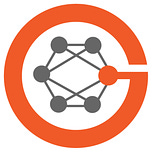


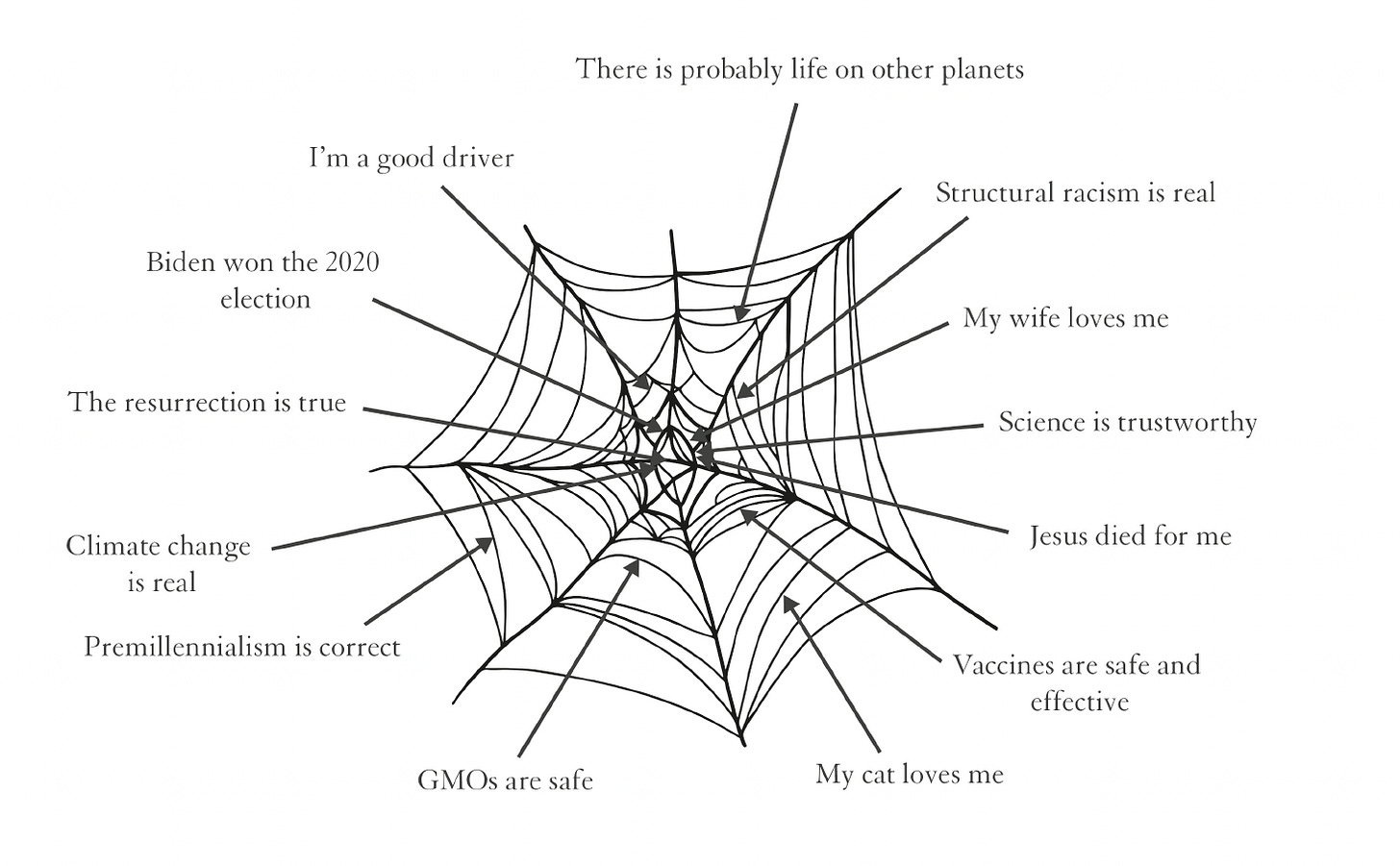




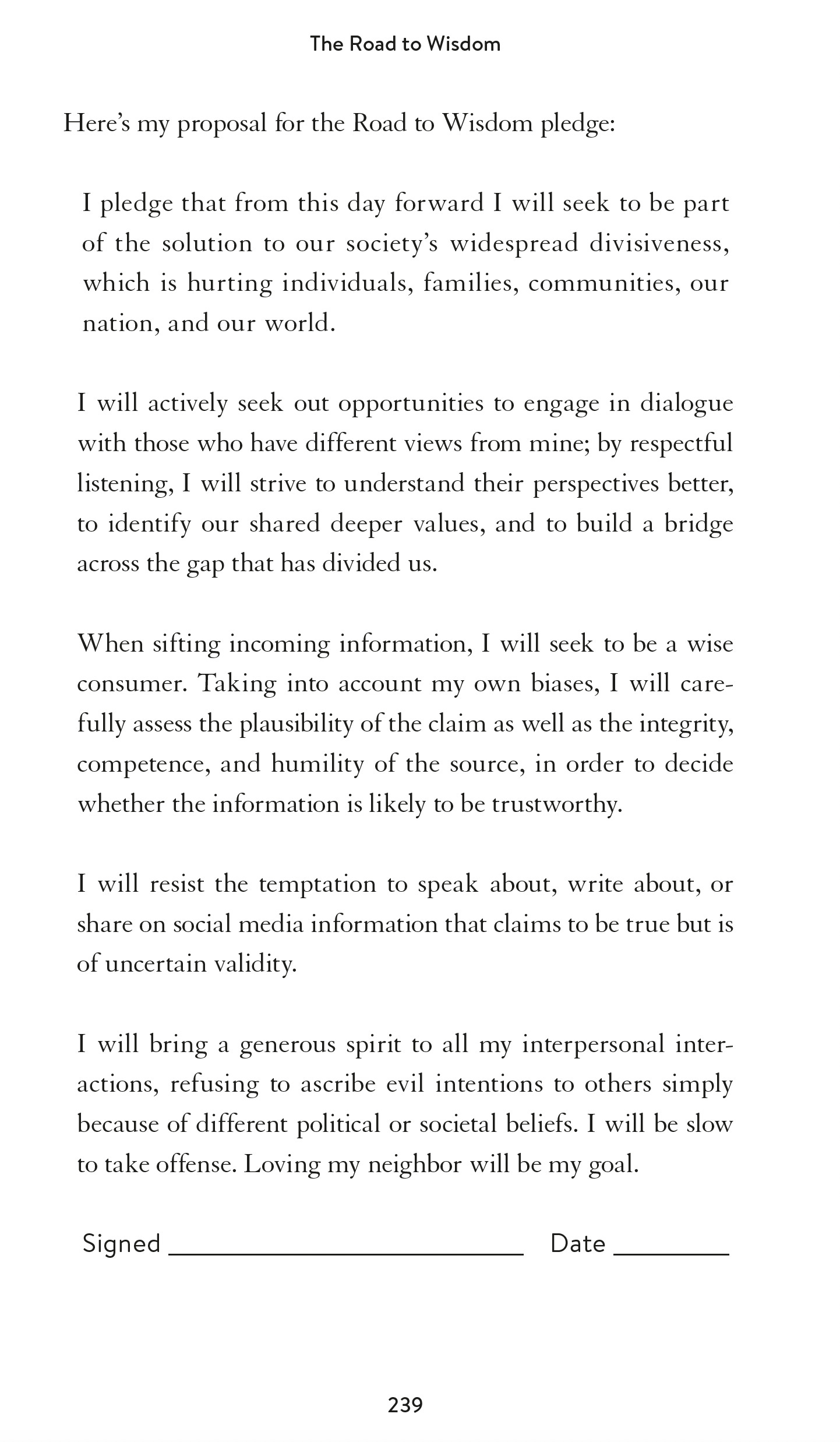


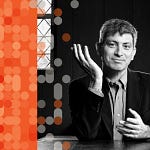


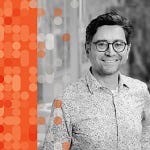
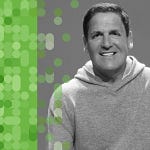
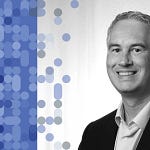
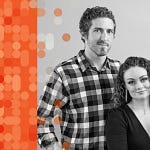
Share this post